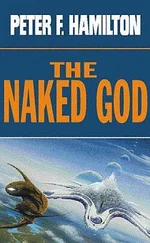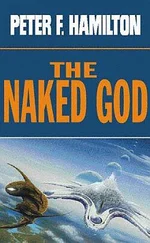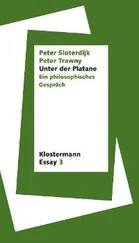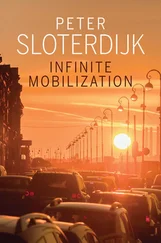*
The course of events after 1789 revealed that the activists had conceived of the practice of “driving out” and “annihilating” in a crudely simplistic fashion. What was supposedly snuffed and driven out, namely hypocrisy and nightshades of older times, asserted itself as a recurrent phenomenon. Hardly had the militancy taken up its work of driving out the night when an irony came to the fore: the expelled reappeared at the very heart of the expellers. The traditional subreption of power irrepressibly reemerged in the following generations of public characters. The delegates of good newness were mustered as politicians of light, only to fall into the old twilight themselves, shortly afterwards.
In more recent times, people have attempted to tell the story of the Enlightenment as a story of inevitable inversion into its opposite. People have also wanted to understand its trajectory as an increasingly manifest realization of its cleverly masked totalitarian impulses. Meanwhile such generalizing interpretations can be considered over and done with; a charitable reading may put them to rest, as discarded exercises in exaggeration.
It could be more in line with the facts of the history of ideas and more fruitful for the self-understanding of human and social sciences to count the course of the Enlightenment from the time of Spinoza and Voltaire to postmodernism, as a history of resigning to hypocrisy – more generally as a growing insight into the commandments of dissimulation that adhere to culture as such. Nietzsche’s words about the “reverence for the mask” indicate the direction of movement. 1
From a moral perspective, what is called resignation in psychology refers to the neutralization of disputes. This makes mediating options available. In front of a steep choice between all-reprehensible dissimulation and completely praiseworthy true confession, it may be advisable for the present to shrink back into the realm of overtones.
Philosophical anthropology, as it has taken shape since the third decade of the twentieth century, has played a towering role in the neutralization of hypocrisy. It was above all Helmuth Plessner who constructed a platform for the relaxing and leveling of the critique of hypocrisy. He did so through his doctrine of the “eccentric positionality” of the human being which he first presented in 1928 and then subsequently developed. 2It was on this platform that overtones could first be heard as explicit compositions.
Plessner capitalized on the discourse about the difference between human and animal, as was common in his time. While Nietzsche had defined the human being as the “unestablished [ nicht festgestellte ] animal,” Plessner took the step of positing that the human being is the animal “placed” [ gestellte ] beside himself. Animals live without exception in a “concentricity” proper to their nature, and are thus sheltered in a permanent state of being at home with themselves in the midst of their environments (although even tortured animals can be “put out of sorts”). “The human being,” by contrast, is characterized by an existential eccentricity. This does not indicate any tendency to odd demeanor or mannered comportment, except in the sense that humankind qua humankind occupies an eccentric pole of the universe: ever since “human beings” buried their dead, negotiated with the beyond, attended balls, and contemplated the series of prime numbers, they have been ontologically derailed, off-track creatures.
Eccentricity, as a positional value in the Plessnerian sense, marks “man” through the structure of his consciousness. It is as though, by virtue of his reflexive constitution, he – and here the naive masculine predominates – were a priori transposed from the middle of existence into the surroundings. For him, to exist means as much as falling outside the borders of an environment. No matter what his environment presents, the human being goes beyond the enclosing effect of the horizon, even when he stays put. He is not here without being there. Having always already run away from the borders of the immediate environment, he must, in the attempt to come to himself, discover himself as a being that is essentially moved beside itself. As if wounded by an inevitable beyond, he is alienated from himself from close range. Nevertheless, he is capable of being “himself,” insofar as he succeeds at coming back to himself from standing beside himself. Being a human takes, accordingly, the form of a task never to be entirely accomplished: in order for existence to succeed, it requires that the individual shape the tension between eccentric and concentric tendencies.
One may, with all due respect, object that Plessner’s artfully elaborated doctrine of the positionally redoubled existence of “man” put a half-price version of German idealism on the market. His doctrine was original insofar as it presented a spatialized interpretation of “self-reflection.” It struck a surprising chord by revealing a hitherto unnoticed depth to the horizontal realm. Up until then, “men” had negotiated with an upwardly transcendent world; now and in the future they were to clinch the deal by dispensing with it altogether, as creatures of a displaced proximity to themselves. If we wished to characterize Plessner’s impulse in a word, we could say that he transposed Feuerbach’s anthropology from the vertical into the horizontal. Eccentricity is offered as a successor figure of transcendence. “Man” is the animal that not only places a heaven above itself, but also bears within itself a remoteness from which it returns to itself.
With his theorem of “eccentric positionality,” Plessner took the conception of the human being as an actor on the stage of the world, which had been in circulation since the Renaissance, and brought it to bear once more, in a terminology of the twentieth century. All men and women are merely players, 3and all have their entrances and exits. Shakespeare’s maxim inaugurated the age of theater anthropology. According to it, the human being is the animal that acts as if . Hypocrisy and hysteria should not be missing from the portrait of the being that is endowed with dissimulation; they furnish the traits of an existence that is histrionic and thoroughly cued in on the gazes of others. What is called “identity” is the self-illusion of the actor, who would like to be, even in the wings, what he portrays on the stage. There is no outside the stage. Resting in the image of what is proper to one can ever emerge only from the antagonism between the perception of the foreign and the positing of the self. At best, it’s a resting in the restless. Phantoms nest in the space of this antagonism. These phantoms lead “man” astray by leading him on. They make him believe that he is himself so long as he looks into the fun-house mirror that others put before him. Today it is, above all, respect and recognition – as well as their negative counterparts – that serve as mirrors. When these cast their reflections, we will inevitably become frustrated with our attempts to find anchorage in what is proper to us. No search for lost naivety can help combat the expectations of shipwreck as we work on mediating between our own perspective and another’s.
*
What Nietzsche wanted to elucidate with the example of Richard Wagner, in order to reject it as a mistaken development, was the “advent of the actor type” in the arts. In reality, this was an event of much older provenance. Its trajectory could not be gleaned from the perspective of the polemics that surrounded art in the nineteenth century. Even Shakespeare – who flourished barely two generations after Martin Luther and eight generations before Nietzsche – only touched in passing on the real origins of the pull toward an eccentric positionality, even if his dictum was destined to be remembered. The entire world is a stage and men and women together mere players: with this thesis he proclaims what will be interpreted philosophically three centuries later – that being and being seen converge. The element of discontent in civilization cannot be attributed solely to the compulsory renunciation of the drives; it stems even more from the feeling of being burdened by the gaze of the unfriendly other. The human being cannot become what and who she is so long as she does not produce herself before the eyes of observers. Existence implies a permanent test of whether one can let oneself be seen.
Читать дальше












